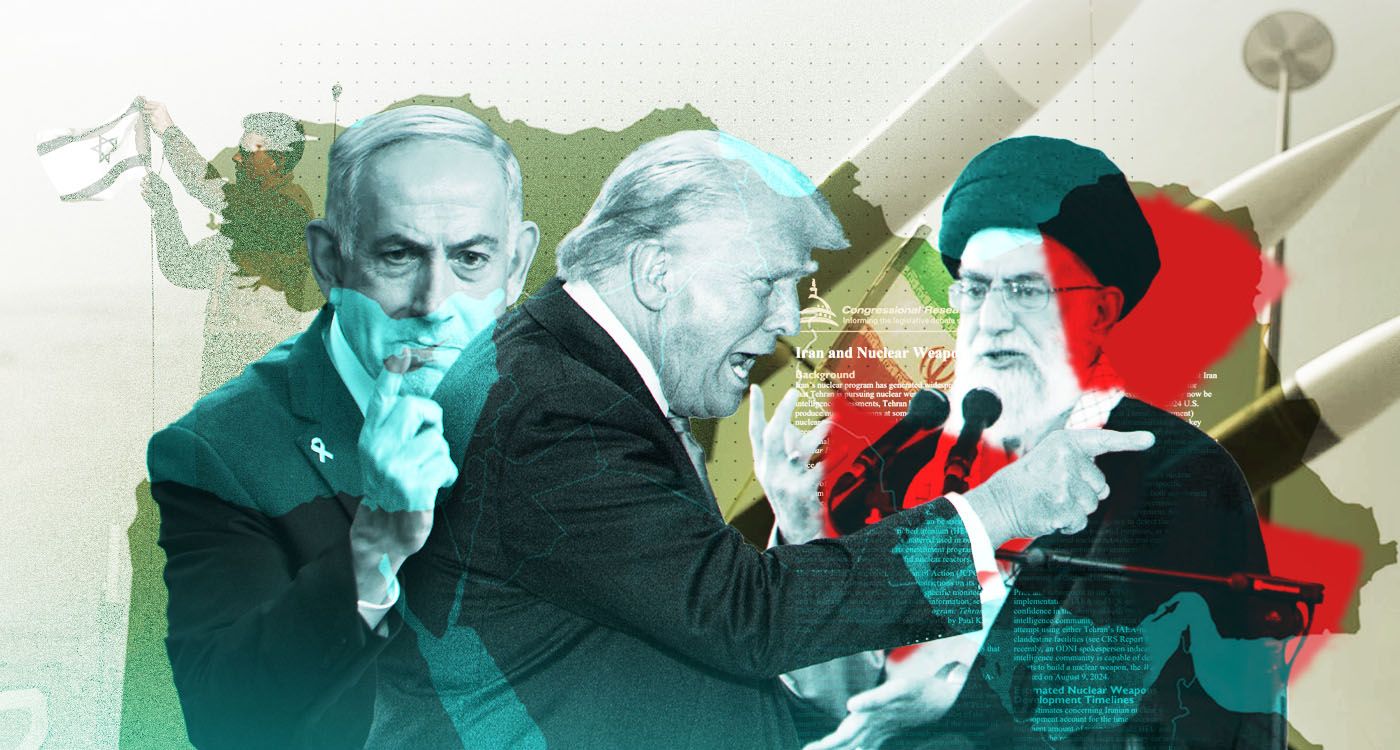- Home
- Middle East
- The Enrichment Gamble: Iran, Israel, and the Brinkmanship of 2025

©This is Beirut
Let me tell you something that every Israeli general, Iranian ayatollah, and American diplomat knows — but hopes you don’t: The next big war in the Middle East won’t start with a ground invasion. It will begin with a whisper in the desert and end with fire in the sky — and the trigger might be buried deep in the Natanz nuclear facility.
Because what we’re seeing right now isn’t just the breakdown of nuclear negotiations — it’s the final act in a long, slow-moving diplomatic chess match where the board is radioactive and every pawn is a missile.
Two days ago, Iranian Supreme Leader Ayatollah Ali Khamenei publicly slammed the door shut on the latest round of indirect nuclear negotiations with the United States, rejecting Washington’s “zero enrichment” demand with a mixture of indignation, defiance, and — let’s be honest — political calculation. He called it “100 percent against Iran’s national interest,” and he’s not entirely wrong. But in the same breath, he declared uranium enrichment a national right, a matter of sovereignty, pride, and deterrence.
It does not sound like a diplomatic dispute. It’s a red line.
And when Middle Eastern leaders start drawing red lines in uranium, things rarely end in handshakes.
Khamenei’s rejection wasn’t a glitch. It was a signal. The Iranian regime doesn’t just want the right to enrich uranium for civilian use — it wants the strategic ambiguity that comes with enrichment. It wants to be two screwdriver turns away from the bomb, not because it necessarily plans to build one, but because the world behaves very differently when it thinks you can.
And why wouldn’t he double down? The US tore up the JCPOA once. Iran adapted. It built better centrifuges, formed new ties with China and Russia, and learned how to survive under “maximum pressure.” They’ve been sanctioned longer than our Netflix subscription has existed.
But here’s the catch: you can’t enrich uranium to 60% indefinitely and expect Israel to sit quietly in the corner.
Israel’s national security doctrine is built on two core principles: First, never let your enemies arm beyond your ability to deter them. Second, if your enemies cross that line, you don’t call a press conference. You call the Air Force.
For Israel, Iran’s nuclear program isn’t just a strategic threat — it’s existential. The Israeli press has been bubbling with speculation that Netanyahu — embattled, emboldened, and always itching for a legacy-defining moment — is weighing a preemptive strike on Iran’s nuclear facilities. In other words, the “Begin Doctrine” (first used in 1981 when Israel bombed Iraq’s Osirak reactor) might be making a radioactive comeback. But if Israel does strike, what are its actual options?
Israel’s Options on the Table (and the runway)
• Surgical Airstrike (The Osirak 2.0 Plan):
• Hit key enrichment sites like Natanz, Fordow, and Arak. This buys time, sets back Iran’s program by months or even years — and triggers a regional firestorm. Iran’s retaliation will come via Hezbollah, missile salvos, and cyberattacks.
• Cyber Warfare (Stuxnet 3.0):
• Deploy a new generation of malware to silently sabotage Iran’s centrifuges. Less bloody, more deniable. But after 2020’s experience, Iran’s cyber defenses are stronger and angrier.
• Covert Ops and Sabotage
• Target top nuclear scientists or facilities with explosions and “accidents.” This has worked in the past — but it’s a game of diminishing returns and increasing blowback.
Trump wants the deal (for now), Gulf states fear escalation, and Biden-style coalition-building is out the window. But if the Israeli intelligence proves a bomb is imminent, pressure will mount.
Strategic Leak + Political Pressure
Leak sensitive intelligence to scuttle the talks, then push for a “snapback” of international sanctions. This delays the clock — but doesn’t stop it.This is a classic Middle Eastern standoff.
When Everyone Is Bluffing, One Person Will Blink. Iran wants leverage. Israel wants guarantees. The US wants a win. But no one wants war.
And yet, all the ingredients are on the table:
• Enriched uranium at 60%.
• An Israeli Prime Minister running out of political time.
• A US President who may or may not want to be dragged into another war before November 2026.
• A Supreme Leader aging into the sunset, who wants his legacy written in national resilience — not capitulation.
If the talks collapse completely — and Iran continues to enrich while threatening to cross the weapons-grade line — expect Israel to act.
The Middle East isn’t just caught between enrichment and deterrence. It’s caught between leaders who bluff with uranium and nations who pay in blood.
Read more




Comments